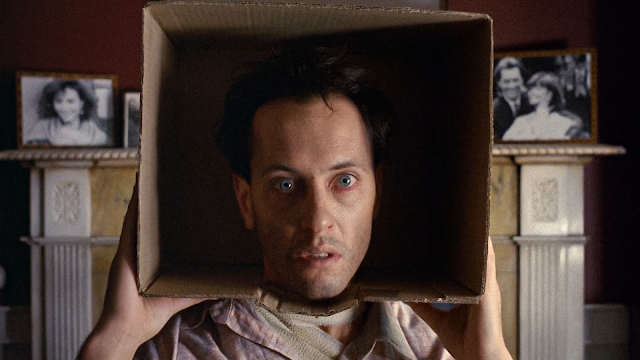 |
| Richard E. Grant in How to Get Ahead in Advertising |
Cast: Richard E. Grant, Rachel Ward, Richard Wilson, Jacqueline Tong, John Shrapnel, Susan Wooldridge. Screenplay: Bruce Robinson. Cinematography: Peter Hannan. Production design: Michael Pickwoad. Film editing: Alan Strachan. Music: David Dundas, Rick Wentworth.
The satire in How to Get Ahead in Advertising is as obvious as the pun in its title. Denis Bagley (Richard E. Grant), a Type A advertising executive, has a breakdown under the stress of coming up with a campaign for an acne medicine. He suddenly realizes the venality of his profession: trying to sell things to people that they don't need and which probably don't work. He quits his job and in a fit of manic behavior almost destroys his house. What's more, he develops a boil on his neck, and in a few days the boil comes to a head -- quite literally -- and begins to talk to him, muttering the advertising slogans and clichés he is determined to put behind him. His distressed wife, Julia (Rachel Ward), tries to help him and sends him to a psychiatrist (John Shrapnel), but things only get worse when a medical accident turns the second head into the primary one. Borrowing from "body horror" movies, Bruce Robinson's screenplay sets up a promising situation, but doesn't have a way of resolving it successfully. Only Grant's terrifically frantic performance, as both Denis and his pustular alter ego, keeps the film going, but the hilarity feels a bit strained toward the end.